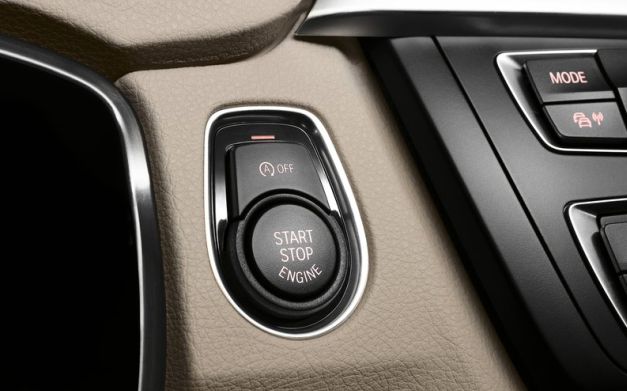Start-Stop system: Stop idling, start saving


Various types of anti-idling provisions have been written into Canadian municipal by-laws for at least three decades. In the Greater Vancouver Regional District, both the City of Vancouver and City of North Vancouver have added amendments to their Street and Traffic Bylaws prohibiting a motor vehicle stopped on a city street from operating its engine for more than 3 minutes during a 60 minute period.

But regardless of these city bylaws, the rumble of idling cars at Canadian intersections is a sound that is fading away progressively as more automakers are using engine start-stop systems to boost fuel efficiency at a relatively low cost.
Also known as micro-hybrid systems, start-stop systems have been very popular in Europe since the 1980’s due to their relatively high fuel prices. Today, every second car in Europe is fitted with a start-stop system. However it is still a bit more of a foreign concept here in North America.
While there are no real Canadian stats, according to Argonne National Labs in the USA, if each car in the US idles just 6 minutes per day, about 3 billion gallons of fuel are wasted annually. This adds up to more than $10 billion a year spent going nowhere.
How the start-stop system works
Start-stop engines work by shutting down a vehicle’s engine at idle and immediately restarting it again when the driver presses on the throttle pedal or lifts off the brake or clutch pedals. This system, which is already a feature of every conventional hybrid vehicle on the market, has begun appearing as stand-alone features on conventionally powered cars as well.

In fact according to Johnson Controls, a major global manufacturer and supplier of the advanced batteries used in stop-start systems, up to 40% of all new cars and light trucks sold in 2015 could be equipped with engine start-stop systems.
But start-stop systems are a lot more intelligent than simple on-off switches. When the car comes to a complete stop, the engine control unit that shuts the engine down will also pre-position the starter motor, transmission, and fuel injector system to provide immediate engine restarts of half a second or less.
Some start-stop systems even boast to re-ignite the engine in a quarter of a second, leaving virtually no lag at all.
What about heating and air conditioning?
Full hybrid vehicles use electric heating and air conditioning systems that aren’t dependent on the car’s internal combustion engine. However, most A/C systems also use power from the engine to run their compressors.
For vehicles with stand-alone start-stop systems, most manufacturers have developed computer control logic that maintains the cabin temperature for up to 2 minutes when the engine is stopped. This is typically the maximum time of a long traffic stop.
After that, the system restarts the engine to keep the climate system working and the cabin temperature comfortable.
Beefed up components
While start-stop systems aren’t terribly hard on the engines, they do demand a lot on the vehicles’ batteries and starter motors. While a conventional car may be started only 3 or 4 times a day, a vehicle with a start-stop system may be started several dozen times a day, depending on traffic conditions.
As such, the starter motor is beefed up with much heavier duty components to handle the added wear and tear of frequent starting.
The battery in a vehicle equipped with a start-stop system also has to maintain climate, audio, and lighting systems each time the vehicle shuts down. As a result, non-hybrid vehicles with start-stop systems tend to use a 12-volt battery called an absorbed glass mat (AGM) battery which can be recharged up to 5 times faster and deeply discharged with no damage.
Consumer savings
With gas prices creeping around the $1.50/litre mark these days, anything that can cut down on fuel costs are welcomed by most consumers.
While start-stop systems are included in the overall price premium for hybrid vehicles, industry analysts say that their actual cost is only between $300-$400.
At this price and a 3-8% improvement in fuel efficiency, a start-stop system on a conventional non-hybrid vehicle could pay itself in only three years or less, depending on the amount of driving you do per year. This is a payback period that most consumers find quite acceptable.
Consumer Reports validated these claims with a 1 mpg improvement in their BMW 328i test vehicle, which accounted for a 5.3% improvement in fuel economy.

